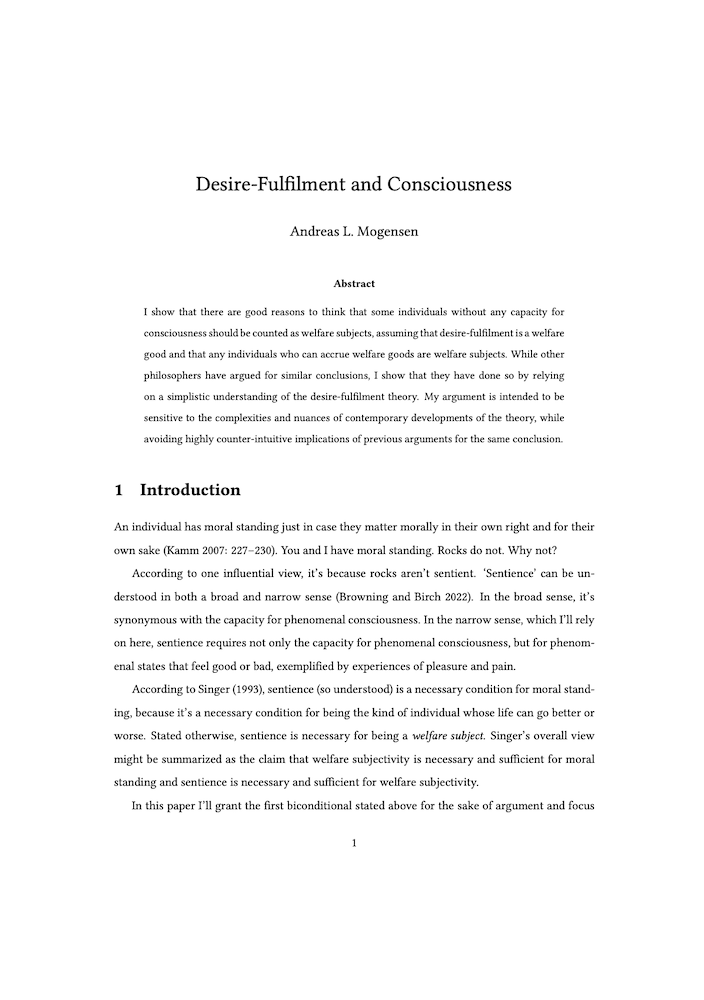Desire-Fulfilment and Consciousness
Andreas Mogensen (Global Priorities Institute, University of Oxford)
GPI Working Paper No. 24-2024
I show that there are good reasons to think that some individuals without any capacity for consciousness should be counted as welfare subjects, assuming that desire-fulfilment is a welfare good and that any individuals who can accrue welfare goods are welfare subjects. While other philosophers have argued for similar conclusions, I show that they have done so by relying on a simplistic understanding of the desire-fulfilment theory. My argument is intended to be sensitive to the complexities and nuances of contemporary developments of the theory, while avoiding highly counter-intuitive implications of previous arguments for the same conclusion.
Other working papers
Philosophical considerations relevant to valuing continued human survival: Conceptual Analysis, Population Axiology, and Decision Theory – Andreas Mogensen (Global Priorities Institute, University of Oxford)
Many think that human extinction would be a catastrophic tragedy, and that we ought to do more to reduce extinction risk. There is less agreement on exactly why. If some catastrophe were to kill everyone, that would obviously be horrific. Still, many think the deaths of billions of people don’t exhaust what would be so terrible about extinction. After all, we can be confident that billions of people are going to die – many horribly and before their time – if humanity does not go extinct. …
Doomsday and objective chance – Teruji Thomas (Global Priorities Institute, Oxford University)
Lewis’s Principal Principle says that one should usually align one’s credences with the known chances. In this paper I develop a version of the Principal Principle that deals well with some exceptional cases related to the distinction between metaphysical and epistemic modality. I explain how this principle gives a unified account of the Sleeping Beauty problem and chance-based principles of anthropic reasoning…
Quadratic Funding with Incomplete Information – Luis M. V. Freitas (Global Priorities Institute, University of Oxford) and Wilfredo L. Maldonado (University of Sao Paulo)
Quadratic funding is a public good provision mechanism that satisfies desirable theoretical properties, such as efficiency under complete information, and has been gaining popularity in practical applications. We evaluate this mechanism in a setting of incomplete information regarding individual preferences, and show that this result only holds under knife-edge conditions. We also estimate the inefficiency of the mechanism in a variety of settings and show, in particular, that inefficiency increases…

